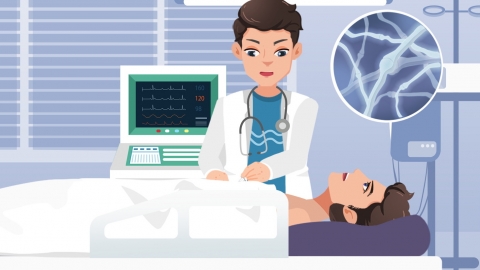Which department should adults visit for hernia?
Adults with hernias can visit departments such as general surgery, hernia and abdominal wall surgery, gastrointestinal surgery, urology, or emergency medicine, depending on the type, location, and urgency of the hernia. If a hernia suddenly becomes incarcerated with severe pain, immediate medical attention at the hospital's emergency department is necessary.

1. General Surgery: A fundamental department in most hospitals, capable of diagnosing and treating common types of hernias such as inguinal and umbilical hernias. The condition can be evaluated through physical examination and ultrasound, and standard hernia repair surgeries are performed, making it suitable for most non-emergency cases.
2. Hernia and Abdominal Wall Surgery: A specialized department available in some hospitals that focuses specifically on hernia diagnosis and treatment. It has extensive experience managing complex or recurrent hernias, offers more advanced surgical techniques, precisely addresses abdominal wall structural issues, and reduces the risk of postoperative recurrence.
3. Gastrointestinal Surgery: For hernias related to the gastrointestinal tract—such as incisional hernias or parastomal hernias—this department can assess the patient’s history of abdominal surgery and manage potential gastrointestinal issues simultaneously during hernia repair, ensuring proper function of intra-abdominal organs.
4. Urology: When an inguinal hernia is near the genitourinary system or may compress the bladder or ureters, the urology department can jointly evaluate urinary function, prevent surgical injury to urinary organs, and ensure safe treatment.
5. Emergency Department: Appropriate for urgent situations such as sudden hernia incarceration, irreducible protrusion, and severe pain accompanied by nausea and vomiting. The emergency team can rapidly activate a green channel for timely surgery to relieve incarceration and prevent serious complications such as intestinal necrosis.
Daily care should include avoiding actions that increase intra-abdominal pressure—such as severe coughing or straining during bowel movements—maintaining a healthy weight to prevent obesity, wearing loose-fitting clothing to reduce abdominal pressure, regularly monitoring changes in the hernia, and seeking prompt medical attention if any abnormalities occur. Delaying treatment is not recommended.




